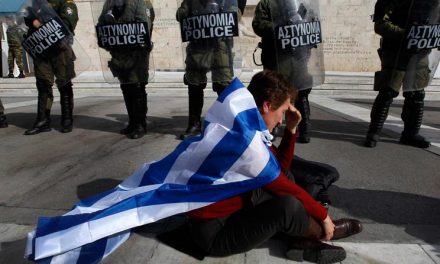With Europe already struggling to cope with the flood of migrants from the middle east, plans to liberalise visa regimes with Ukraine, Georgia and Kosovo are pushing the UK closer to a ‘Brexit’
Jack Montgomery*
European Commission supremo Jean-Claude Juncker confirmed at the end of last year that the EU would be seeking “rapid decisions on visa liberalisation” for Kosovo, Georgia and Ukraine early in 2016. This follows its controversial decision to scrap visa requirements for Turkey, to encourage the government there to close its porous borders with Syria and Iraq.
So, while David Cameron has been squabbling over the trivial side issue of how long migrant workers have to be in the UK before they can access benefits, the EU is opening the door to more than fifty million people in war-torn countries. Nothing could more clearly demonstrate the utter impossibility of bringing migration under control while Britain remains a member of the bloc, and news of the proposal will no doubt push voters closer to the exit door in the upcoming referendum on EU membership.
Poland already has a huge problem with illegal workers from Ukraine, with current numbers estimated at 300,000 to 400,000. Polish president Andrzej Duda has voiced concerns that “several hundred thousand” more are now poised to enter the country, with formal asylum applications from Ukraine having increased from just 46 to 2,318 following the country’s destabilisation by the Brussels-funded Euromaidan.
This has had a profound effect on local workers, who are being undercut by the new arrivals and even further incentivised to seek work abroad in other EU member states. Ultimately, this has the effect of driving down wages and increasing pressure on public services in the UK.
Nor should we only be concerned about Ukraine. There are close to 300,000 displaced persons in Georgia, left homeless by the conflict stemming from Mikhail Saakashvili’s failed invasion of South Ossetia. 80% are estimated to be jobless and will be eager to seek employment in the EU, where they will be easy targets for unscrupulous employers.
As for Kosovo, it was only a few months ago that an EU investigation – prompted by accusations that its own €111 million-a-year rule-of-law mission was involved in bribe-taking – ruled that corruption was “omnipresent” in the country. Combined with its reputation as a centre for organised crime and a hotbed for terrorism (Kosovo has provided more soldiers per capita to the Islamic State than any other European nation), this makes any move towards liberalising travel arrangements with the EU highly questionable.
These crazy proposals only make sense if they have been calculated as a snub to Russia, which has difficult relations with all three countries and has seen its own efforts to secure a relaxed visa regime rebuffed.
The EU seeks to irritate the Kremlin as part of a long-term strategy intended to secure support for the creation of an EU army. The European Commission has already taken advantage of the migrant crisis to put forward plans for an armed border force, which it will be allowed to deploy to member countries without permission, and clearly hopes that increased tension with Russia will allow it to claim a need for force which can, to quote Commission President Jean Claude-Juncker, “show Russia that we are serious”.
The losers in this dangerous political game, as so often, will be ordinary people in Britain, particularly workers on low incomes. That’s why the Leave.EU campaign is advocating that people in the UK vote to leave the EU, take back control over their own foreign and immigration policy, and play no further part in Brussels’ foolish and self-aggrandizing adventurism in eastern Europe.
*The author is a press officer with the UK’s Leave.EU campaign. This article is an exclusive to RI



















